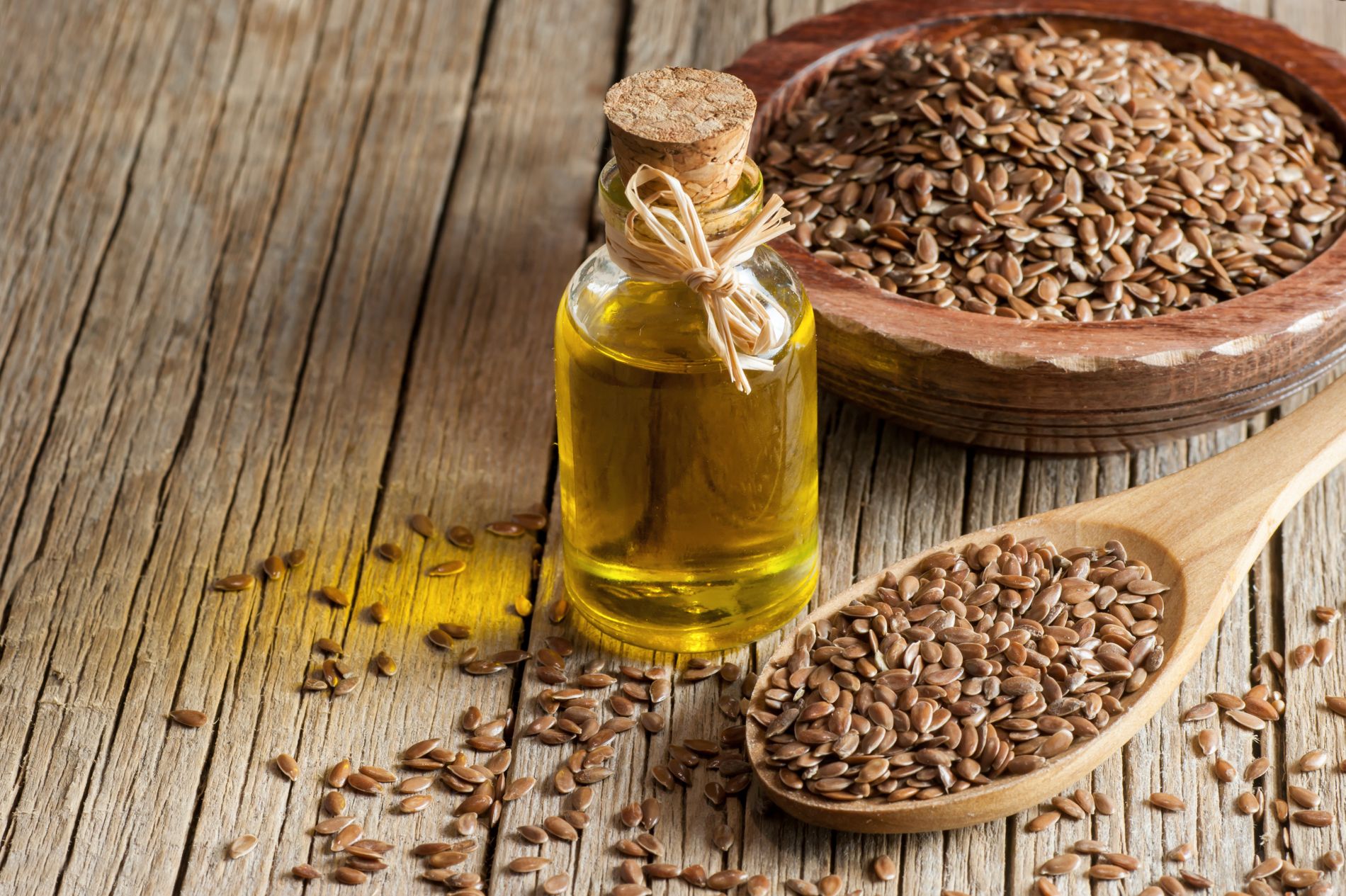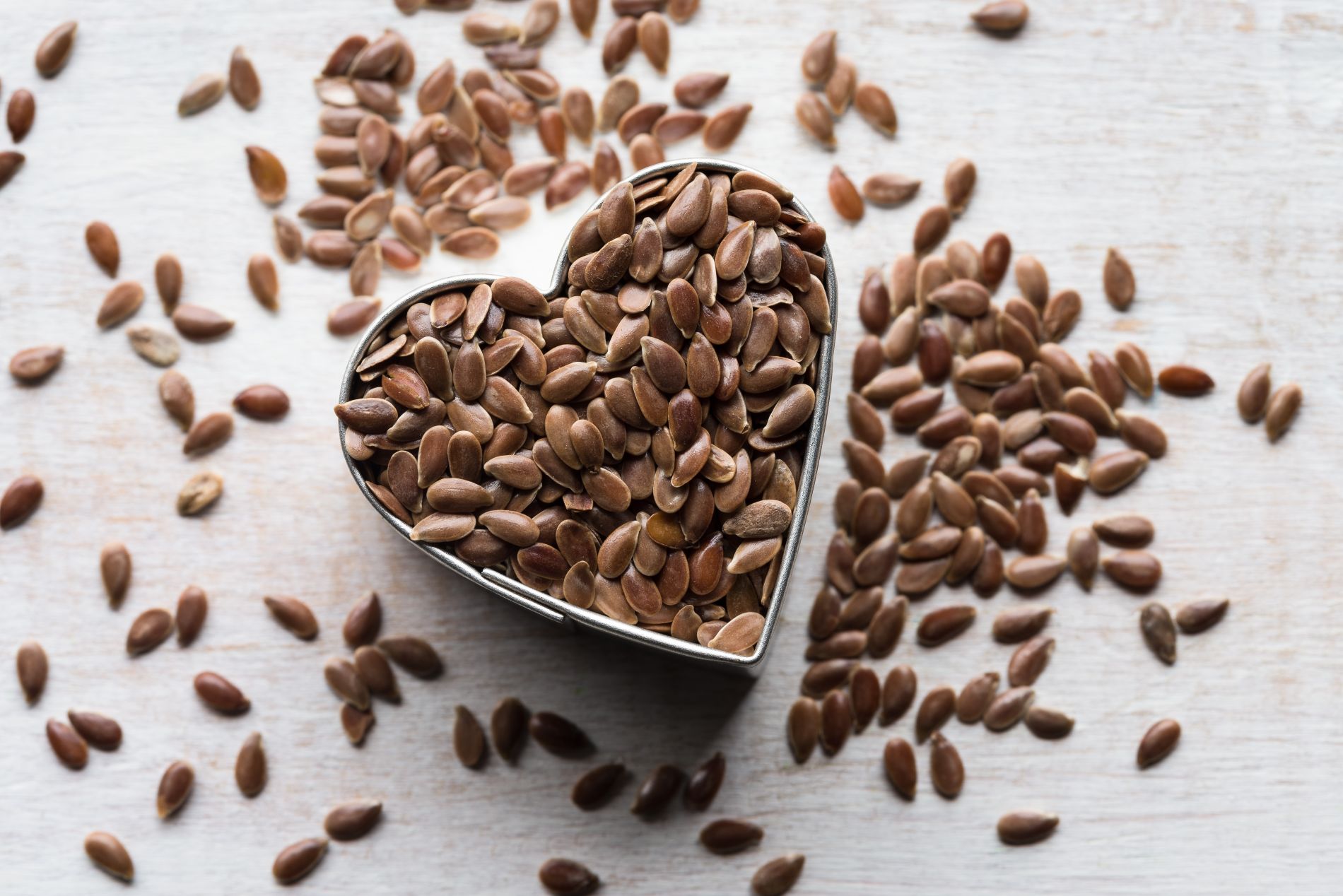Polish superfood - flaxseed

Flaxseed(Linum usitatissimum L.), or linseed, is grown all over the globe, with the largest production currently recorded in Canada, China, Russia and India. Flaxseed is a small, flat seed with a crunchy texture and nutty flavor that ranges in color from golden yellow to reddish brown. Flaxseed is a food product with high nutritional value and numerous health-promoting qualities, which is why it is often referred to as a Polish superfood.
- Flaxseed - nutritional values
- Flaxseed - how many calories does it have?
- Flaxseed - properties
- Flaxseed - contraindications
- How to eat flaxseed?
Flaxseed - nutritional values
Flaxseed is a very good source of polyunsaturated fatty acids, especially alpha-linolenic acid (ALA), which is counted among the essential fatty acids (EFA), which the human body is unable to produce on its own and therefore must be supplied regularly with the diet. An adequate supply of ALA with food is important for the production of long-chain omega-3 polyunsaturated fatty acids (EPA and DHA) in the human body, although the conversion of ALA to EPA and DHA is not very efficient. Alpha-linolenic acid accounts for 40-60% of all fatty acids found in flaxseed. In addition, flaxseedcontains large amounts of dietary fiber (both soluble and insoluble fractions), protein, sulfur amino acids (methionine and cysteine), arginine, vitamins (including B1, B3, B5, B6, B9, E, K) and minerals (especially potassium, phosphorus, magnesium, calcium, iron, zinc). Flaxseed is sometimes called a Polish superfood, because it is also rich in numerous bioactive substances with a wide spectrum of health-promoting properties. Among them are listed polyphenols and phytoestrogens (lignans).
Flaxseed - how many calories does it have?
Flaxseed is a high-calorie product, as 100 g of flaxseed provides as much as 534 kcal. However, it is worth noting that flaxseed is not consumed in large quantities. One tablespoon of flaxseed (10 g) provides 53 kcal and less than 3 g of dietary fiber to regulate the digestive tract. Interestingly , studies have shown that regular inclusion of flaxseed in the diet in the amount of 20-30 g per day can promote weight loss and reduce waist circumference in overweight or obese people. The dietary fiber in flaxseed slows gastric emptying, reduces intestinal absorption of nutrients and enhances feelings of satiety and fullness by binding large amounts of water, so it may promote weight loss.
Flaxseed - properties
Flaxseed relieves the symptoms of irritable bowel syndrome (IBS), especially abdominal pain, bloating and constipation of stools, and improves intestinal function. In patients with constipation, flaxseed consumed every day in the amount of 20 g (twice a day, 10 g each) can reduce constipation and significantly improve the consistency of stool. Regular inclusion of flaxseed in the diet contributes to a significant reduction in the concentration of total cholesterol and low-density lipoprotein LDL (so-called bad cholesterol) in the blood, especially in dyslipidemic patients. In addition, flaxseed significantly reduces both systolic and diastolic blood pressure in hypertensive patients. Flaxseed exhibits antioxidant, anti-inflammatory, antiproliferative, antihypertensive and hypolipemic (i.e., lowers blood cholesterol levels) properties, so it can prevent the development of atherosclerosis of blood vessels. Frequent consumption of flaxseed is associated with a decrease in blood glucose, insulin and glycated hemoglobin (HbA1c) levels, as well as a decrease in the HOMA-IR insulin resistance index and an increase in the value of the QUICKI quantitative insulin sensitivity control index, and even more so in people with insulin resistance and type 2 diabetes. Flaxseed also has anticancer properties and may reduce the risk of breast cancer and prostate cancer.

Flaxseed - contraindications
Too much flaxseed (usually more than 50 g per day) can cause gastrointestinal discomfort in some people, such as bloating, abdominal pain, indigestion, nausea and diarrhea. Especially patients suffering from inflammatory bowel disease and irritable bowel syndrome should avoid consuming flaxseed in large quantities. In addition, some people may observe a hypersensitivity reaction to flaxseed, which can manifest as itching (especially of the hands), hives, nasal obstruction, abdominal pain, nausea, vomiting and diarrhea. Flaxseed can also reduce the absorption of some medications and reduce their effectiveness, so it is advisable to consume it 2 hours after taking medication.
How to eat flaxseed?
A Polish superfood, flaxseed can be eaten raw (e.g. as an addition to oatmeal, yogurt, salads, smoothies), but it should be ground in a grinder before consumption, as the nutrients will then be much more easily absorbed by the human body. You can also prepare the popular flaxseed gruel to relieve sore throats and painful conditions in stomach and duodenal diseases. To do this, it is recommended to pour 1-2 tablespoons of flaxseed (whole grains) over one cup of hot water and brew covered for 15 minutes. It is also worth noting that you should always buy flaxseed whole, and it is best to grind the seeds in a small amount immediately before eating.
Sources:
- Khalesi S., Irwin C., Schubert M.: Flaxseed consumption may reduce blood pressure: a systematic review and meta-analysis of controlled trials. J Nutr. 2015 Apr;145(4):758-65.
- Ursoniu S., Sahebkar A., Andrica F., et al: Effects of flaxseed supplements on blood pressure: A systematic review and meta-analysis of controlled clinical trial. Clin Nutr. 2016 Jun;35(3):615-25.
- Mohammadi-Sartang M., Sohrabi Z., Barati-Boldaji R., et al: Flaxseed supplementation on glucose control and insulin sensitivity: a systematic review and meta-analysis of 25 randomized, placebo-controlled trials. Nutr Rev. 2018 Feb 1;76(2):125-139.
- Mohammadi-Sartang M., Mazloom Z., Raeisi-Dehkordi H., et al: The effect of flaxseed supplementation on body weight and body composition: a systematic review and meta-analysis of 45 randomized placebo-controlled trials. Obes Rev. 2017 Sep;18(9):1096-1107.
- Ren G.Y., Chen C.Y., Chen G.C., et al: Effect of Flaxseed Intervention on Inflammatory Marker C-Reactive Protein: A Systematic Review and Meta-Analysis of Randomized Controlled Trials. Nutrients. 2016 Mar 4;8(3):136.
- Flower G., Fritz H., Balneaves L.G., et al: Flax and Breast Cancer: A Systematic Review. Integr Cancer Ther. 2014 May;13(3):181-92.
- Parikh M., Netticadan T., Pierce G.N.: Flaxseed: its bioactive components and their cardiovascular benefits. Am J Physiol Heart Circ Physiol. 2018 Feb 1;314(2):H146-H159.
- Pan A., Yu D., Demark-Wahnefried W., et al: Meta-analysis of the effects of flaxseed interventions on blood lipids. Am J Clin Nutr. 2009 Aug;90(2):288-97.
 ⮜ Previous article
⮜ Previous article
How to deal with dehydration?
 Next article ⮞
Next article ⮞